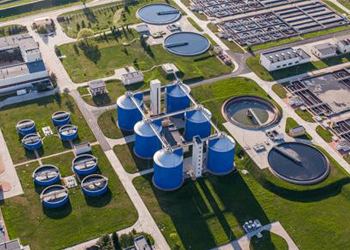- Technical Specification
- Gallery
- Quick Inquiry
- STP Plant Importance
- STP Plant India
- ETP Plant India
- Wastewater Treatment Plant India
- Effluent Treatment Plant
- WTP Plant Chennai
- STP Plant Chennai
- Sewage Treatment Plant Chennai
- Effluent Treatment Plant Chennai
- ETP Plant Tamilnadu
- Effluent Treatment Plant Tamilnadu
- Sewage Treatment Plant Tamilnadu
- STP Plant Tamilnadu
- Wastewater Treatment Plant Tamilnadu
- Water Purification Plant UAE
- Effluent Treatment Plant UAE
- Sewage Treatment Plant UAE
- DM Plant UAE
- DM Water Treatment Plant UAE
- Water Treatment Plant UAE
- Why ETP Plant Required?
- STP Plant Trichy
- Installing STP Plant Benefits
- Water Purification System
- Need Wastewater Treatment Plant
- STP Plant Trichy
- Benefits of ETP Plant
- STP Plant Manufacturers
- Advantages of Wastewater Treatment Plant
- Industrial Effluent Treatment Plant
- Sewage Treatment Plant
- DM Plant South Africa
- ETP Plant South Africa
- WTP Plant South Africa
- ETP Plant Suppliers
- STP Plant Suppliers
- Reverse Osmosis Plant
- RO Plant in Chennai
- Iron Removal Plant
- Wastewater Treatment Plant Chennai
- WTP Plant in Chennai
WASTE WATER TREATMENT PLANT
Technical Specification
Wastewater treatment is an interaction that changes over wastewater from unusable state into a gushing can be either gotten back to the water cycle with insignificant ecological issues or reused for another reason. It's a treatment that, given its significance, an ever increasing number of legislatures at last understand that they need to find noteworthy ways to further develop their wastewater treatment processes.
Significant of wastewater treatment
Fundamental forever, clean water is quite possibly of the main regular resource in the world. Wastewater, which is essentially utilized water, is likewise an important resource, particularly with repeating dry seasons and water shortages in numerous region of the world. Nonetheless, wastewater contains numerous destructive substances and can't be delivered once again into the climate until it is dealt with. Hence, the significance of wastewater treatment is twofold: to re-establish the water supply and to safeguard the planet from toxins.
Restoring the Water Supply
Take a gander at a worldwide dry season guide and you will see that numerous region of the world essentially need more water. All people group, particularly regions with water shortage, need to guarantee they have great water treatment processes set up so that treated water can either be reused or gotten back to the water cycle, yet entirely never wasted.
Safeguarding the Planet
Wastewater can incorporate toxins from both residential and commercial use. Untreated, the chemical mixtures and microorganisms in wastewater can hurt the health of creatures, plants and birds that live in or close to the water. It can likewise pollute yields and drinking water, influencing human wellbeing. Wastewater treatment is crucial to safeguard the strength of various environments.
Actually, wastewater treatment plants do as portrayed; they treat the water that goes down our channels prior to releasing it back into the climate. No matter what the endeavours that are being made to introduce these plants around the world, more is required. Water is perhaps of our most significant resources and its being wasted. There are numerous ways of treating wastewater and the better the interaction, the higher the rate that can be reused before it gets unloaded into the sea.
Advantages of Wastewater Treatment
Waste Decrease
Through the treatment of wastewater, how much waste that is generally delivered into the climate is diminished consequently working on climate's health. Thusly, the public authority thus decreases the health risks related with ecological contamination, and lessens the water misfortune prompted through water contamination. Wastewater treatment likewise diminishes how much cash spent by a country on ecological restoration projects expected to fight pollution.
Energy Creation
The sludge gathered during the treatment cycle is itself treated in light of the fact that it contains a lot of biodegradable material. It is treated with anaerobic microscopic organisms in unique completely encased digesters warmed to 35 degrees Celsius, a region where these anaerobic microorganisms flourish with no oxygen. The gas created during this anaerobic assimilation process contains a lot of methane, which is reaped and afterward consumed to produce power.
Compost Creation
Any biodegradable material excess is dried in "drying tidal ponds" and is then transformed into regular compost. The subsequent regular manure is then utilized in the rural area, expanding crop yields. This diminishes the utilization of substance manures that contaminate the encompassing marine and surface environments.








